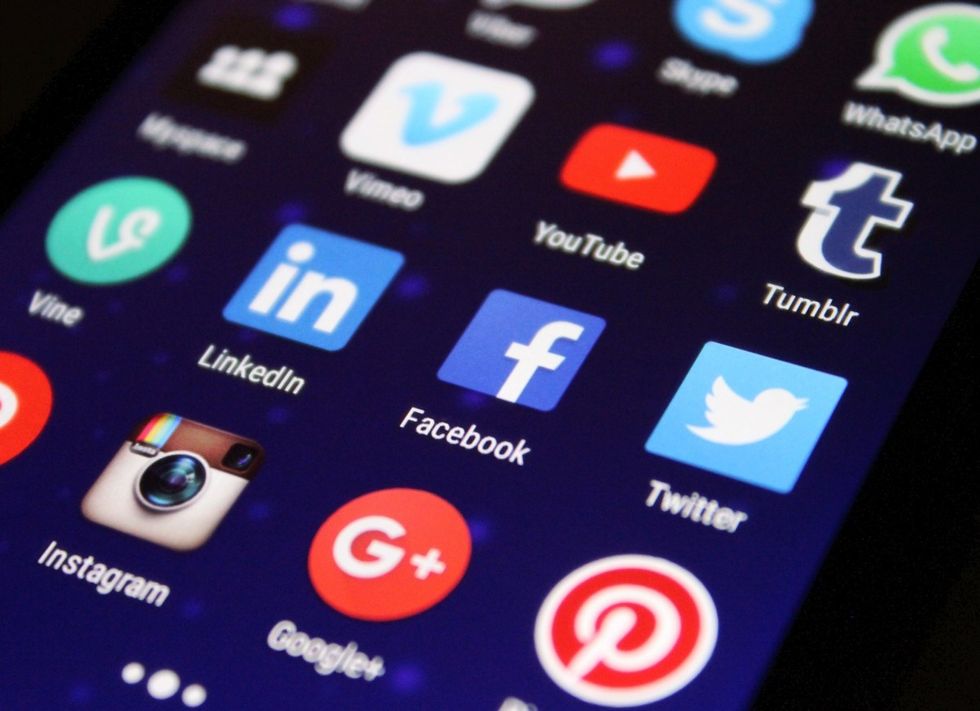With social media platforms such as Facebook retaining information from your internet usage, and corporations sending out targeted ads-- data mining is a large part of the average American's life.
Generation Z are people who were born from 1996 to 2010, according to businessinsider.com. Those a part of Gen-Z have only grown up in a world where technology was ever-changing, and in their grasp.
Gen-Z knows the internet and social media like the back of their hand, and that includes data mining or at least the idea of it.
Memes on social media including jokes about the 'FBI agent' that watches people through their smartphone or conspiracy theories about how artificial intelligence (AI) such as Siri or Alexa listening to individuals at all times, all relate to the idea of data mining.
Data mining is digging through large sets of data, such as what your search on Google or the videos you watch on YouTube, and finding the patterns. Companies will then use this information to try to sell you what they think you want.
For example, if you often search up recipes or cookware and watch cooking videos on YouTube, it's likely that as you scroll through Instagram or Facebook you'll find sponsored content or advertisements centered around cooking.
"Data mining is the process of finding anomalies, patterns and correlations within large data sets to predict outcomes," sas.com said. "Using a broad range of techniques, you can use this information to increase revenues, cut costs, improve customer relationships, reduce risks and more."
For businesses and corporations, this could be seen as a more innovative and modern way of advertising.
For consumers, however, it may seem like an invasion of privacy, and Gen-Z tends to be aware and vocal about it.
"To a certain degree, it is definitely an invasion of privacy. Sometimes I see ads that are so specific I wonder if maybe (corporations) are getting my data somewhere else other than social media which concerns me," said Rebecca Wondimu, 19, an Arizona State University (ASU) student.
"It feels like everything you do is being tracked," said Sebastian Solis-Felix, 19, an ASU student.
Solis-Felix said that data mining is an absolute invasion of privacy, and shouldn't be used by corporations at all. If data mining continues, "it'll get worse. Sooner or later we'll have a '1984' society," Solis-Felix said.
Noah Huerta, 20, an ASU student, agreed with Solis-Felix that data mining automatically crosses a line.
"I do think data mining is very invasive. But honestly, it's become a norm in society so I don't think it's going to change now," Huerta said. "So many people can see our data, so I don't mind, but I feel like I should."
"I think it has helped corporations gain more business, but it's uncomfortable that they know exactly what I'm looking for," said Mitchell Zimmerman, 19, an ASU student.
While all these Gen-Z students said they were uncomfortable with data mining, they were all able to see how it benefits a corporation.
"Using our data allows corporations to literally reach their target audiences directly into our devices," Wondimu said. "Of course, this plays a huge role in their success because now they don't have to spend thousands of dollars on advertising."
"Being able to access more information has greatly benefitted corporations. Now they know what you're searching for and can tailor ads to you specifically," Zimmerman said. "If you look at Facebook or Amazon, they have the power to see exactly what you want and can push ads that will make you want to buy something."
"I think it's an invasion of privacy, however I understand why they do it," Zimmerman said. "People can turn off their cookies and choose not to participate, however that information is not given to the consumer."
Wondimu said data mining crosses a line, for her, when "our personal data is being used to harm someone or ourselves. If some situation were to occur where our private information, such as names or addresses were put out into the public, it would be extremely dangerous. Once it's out there, anyone could find it."
Some of Gen-Z may have their doubts about data mining, however, Angela Shinn, a business analyst, said the tactic is a crucial part of her job.
"(This) data gives me information about a group that can help me make decisions on how we as a company will market to that," Shinn said.
While data mining has been getting more attention through companies like Facebook, Shinn said "data mining is historical and predictable. It helps figure out what people are going to do next so they can skew their marketing plans for it."
"Data mining is kind of like spying in the aspect that you get information from people without them knowing, but it's information mainly from groups not just for one person," Shinn said.
"I think data mining crosses a line when you use that technology to observe a specific individual's behavior in detail as opposed to a group, then it's an invasion of privacy," Shinn said. "In addition, if private information is accessed somehow then I think that crosses a line."
















